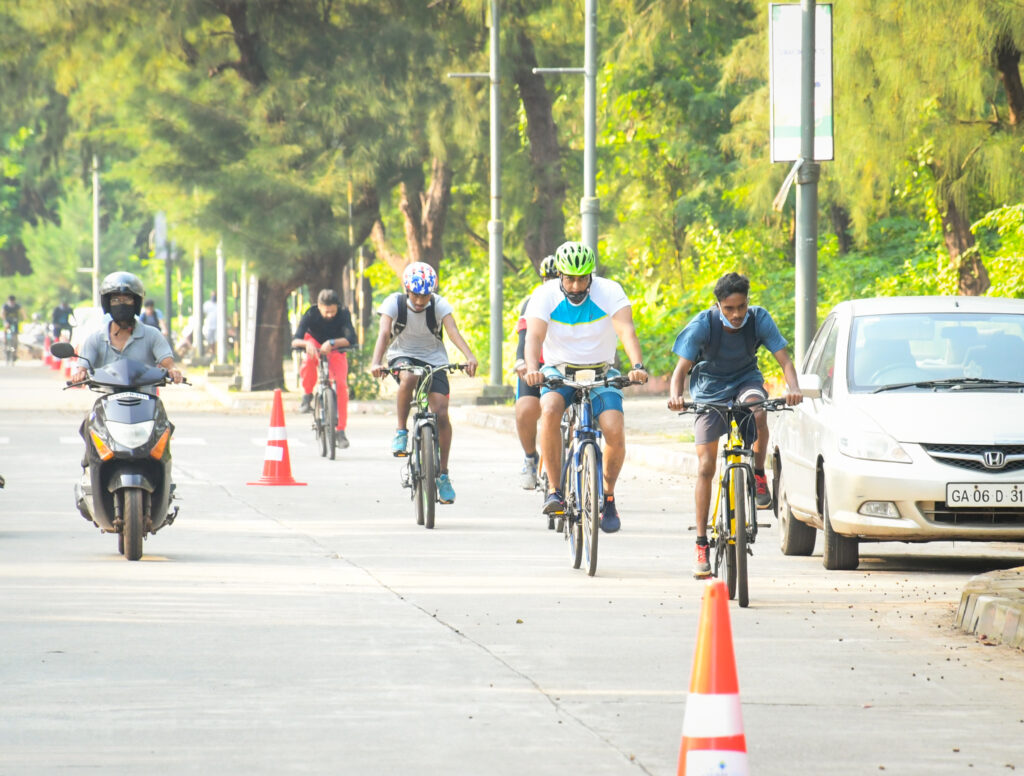Cities will shape India’s transition to net zero. Despite being a technical concept rooted in the physical sciences, net zero has galvanised the imagination of more than 60 cities in India. While some of these cities are amongst India’s largest, the majority are rapidly growing, mid-sized cities, with a population of less than 1 million. These cities are expected to increase in number from 120 to 164 and accommodate 20 million new people by the end of this decade. This is a massive opportunity to pioneer a transition to net zero, by adopting socio-technical innovation across sectors like energy, buildings, mobility and business to avoid carbon lock-in as they grow. However, net zero pathways are overwhelmingly focused on emerging technological solutions and largely gloss over the need for societal and behavioural changes.

Transitions Research recently launched PULL: Net Zero, our new project which supports mid-sized growing, Indian cities develop equitable pathways to net zero. The project addresses the complex social and technical challenges associated with net zero, by employing our People’s Urban Living Lab (PULL). PULL provides an alternative approach to planning for net zero, with a focus on the social and institutional dimensions of this transition.
To begin to unpack the social change that’s required to achieve an equitable net zero future, Transitions Research organised a dialogue called Building a Net Zero Society, on World Cities Day, October 31st, 2023. The conversation focused on a the social changes that are urgently needed and must accompany shifts in technological systems: first, that behavioural change and normative shifts must enable individuals to adopt low carbon lifestyles; second, that net zero pathways need to address urgent development concerns and have co-benefits for marginalised communities; and third, that new institutional approaches to urban planning are urgently required to achieve net zero.
Encouraging Low Carbon Lifestyles:
Behavioural shifts are urgently needed to achieve a net zero future: recent reports indicate that up to 70% of emissions can be mitigated with lifestyle and behaviour changes. However, facilitating that behaviour change requires a combination of ‘upstream’ policy interventions and ‘downstream’ nudges to shift behaviours. Upstream, policies need to encourage individuals and households to adopt low carbon behaviours. Examples of upstream policies are cost incentives or design choices that create an enabling environment for low carbon choices. For example, Norway made electric vehicles (EVs) more attractive by creating special driving lanes just for EVs. Downstream, individuals make choices based on their knowledge, values and beliefs. To encourage individuals to make low carbon lifestyle choices, nudges can be extremely effective. For example, to address issues of food waste in the UAE, hotels and restaurants began offering reduced portion sizes, which led to a reduction in 50% of food waste. Neither upstream nor downstream interventions alone can change behaviour. A combination of strategies, which make sustainable consumption easy, attractive, social and timely, and are rooted in the local culture and norms, are needed in Indian cities to encourage sustainable behaviours.
Centring People and Not Carbon:
Urban planning in India has prioritised commercialisation over equitable growth and climate action. Across Indian cities, infrastructure and governance mechanisms overlook the needs of marginalised communities. For example, disinvestments in non-motorised mobility infrastructure, like walking paths and cycling lanes, have resulted in treacherous conditions for the urban poor who rely on these modes of transport. Net zero pathways which prioritise technological solutions and disregard social and development challenges in the city, run the risk of entrenching the same inequalities. Inclusive net zero pathways, which account for socio-spatial vulnerability and issues of marginality and access to services, can enable equitable development while also achieving climate goals. Planning must transition away from top down solutioning and engage diverse stakeholders to ensure the aspirations of people are included in net zero pathways.
The Need for Innovative Urban Planning:
Urban Living Labs have emerged as a new approach to challenge conventional, centralised urban planning. PULL, India’s first Urban Living Lab, serves as a boundary institution that enables societal change for net zero. It is a platform to engage with diverse stakeholders, facilitate participatory planning and enable collaboration and co-creation. PULL: Net Zero works to understand how to operationalise net zero pathways within the complex social, political and economic landscapes of our cities. It works to address contested imaginaries and build consensus towards a shared, inclusive vision for a net zero future. It also works to address fragmentation in climate governance, by convening diverse stakeholders in interdepartmental committees to chart a course of action for implementation. Finally, it also tests co-created, climate solutions in the real life laboratory of neighbourhoods and cities, to understand how net zero pathways can be socialised and mainstreamed.
It’s clear that we need to reimagine a net zero society, with pathways that are defined not just by technology deployment, but also societal transformations that allow for equitable urban growth. Learn more about our work on PULL Net Zero on our website and watch the recording of our dialogue here. We were in conversation with Ms. Kristina Londakova, Principal Advisor at the Behavioural Insights Team in the UK, Dr. Shiraz Wajih, President of the Gorakhpur Environmental Action Group and Ms. Ashali Bhandari, who is leading PULL: Net Zero at Transitions Research.




